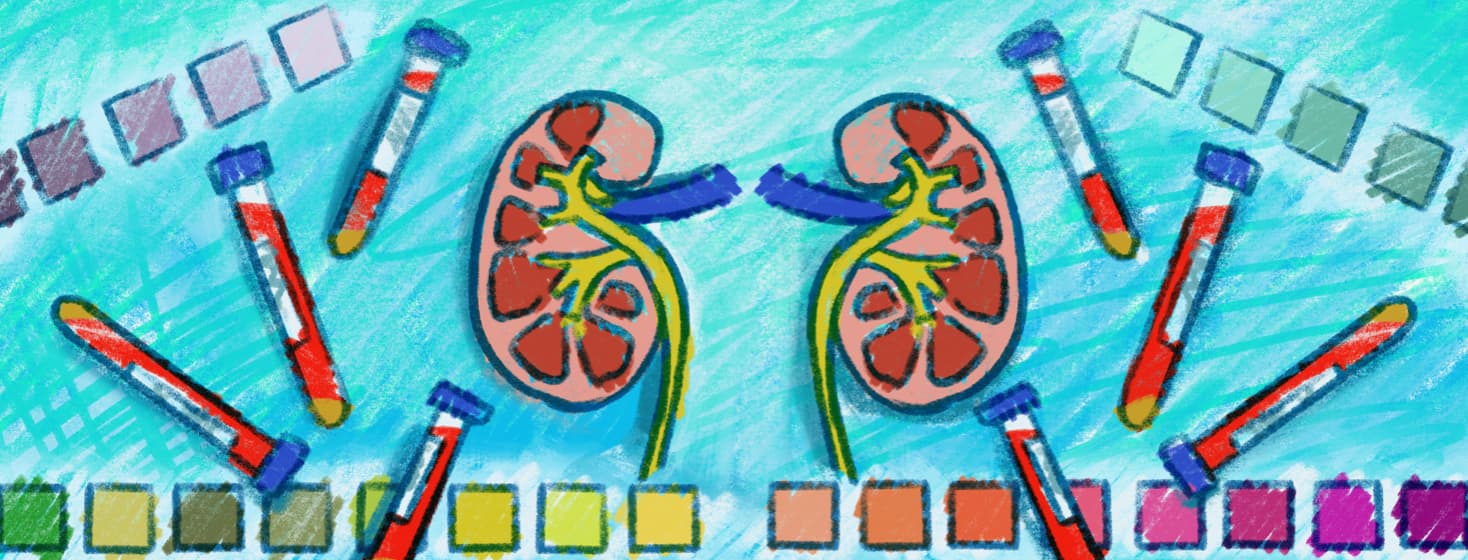Chronic Hepatitis C and Kidney Health
Editors Note: If you have any questions concerning your kidney health, please see your doctor.
It is estimated that 4 in 10 people with chronic hepatitis C will go on to develop a complication that has absolutely nothing related to their liver1. These types of complications are considered “extrahepatic,” or outside the liver.
Kidney damage can be an extrahepatic complication of hepatitis C.
How do you know if hepatitis C is affecting your kidneys?
Kidney issues from hepatitis C can show up in different ways. For some, too much protein in the urine, which is known as albuminuria, is present without other signs of kidney disease.
For others, chronic kidney diseases develop1.
Cryoglobulinemia has been linked to hepatitis C infections and is one reason why kidney damage may happen. Cryoglobulinemia is a condition where irregular proteins in your bloodstream clump together at temperatures less than 98.6 degrees Fahrenheit.
Most adult body temperatures usually run between 96.4 F to 98.5 F2. The clumping of these proteins can block blood flow to important body parts and especially affects your kidneys and liver3.
Mixed cryoglobulinemia is a type of cryoglobulinemia more common with hepatitis C infections, and can show up as purple spots on your skin. This is called purpura.
Joint stiffness or achiness, known as arthralgia, and muscle pain, known as myalgia, can also occur. The filtering units of the kidneys, called the glomeruli, may also be impacted.
Glomeruli damage can happen even if you don’t have cryoglobulinemia. If your kidneys are affected by chronic hepatitis C, you may show few, if any, signs. Blood in the urine may be obvious, but most things are only found through lab work and checkups.
Testing your kidneys to maintain health
That means regular testing of your kidney health is important. Examples of testing that can be done include:
Basic metabolic panel (BMP): This is a blood test that, among other things, gives information on how well your kidneys are filtering out your body’s waste. Creatinine, eGFR, BUN are all examples of results that show up on a BMP and give information on your kidney function.
Microalbumin or albumin/creatinine ratio: These urine tests show the level of protein in your urine.
Urinalysis: While this test is not regularly done to check kidney health, it can show if you have protein and blood in your urine45.
Treating symptoms of kidney disease includes using medications that protect the kidneys. This can include blood pressure medications (like ACE inhibitors), cholesterol medications, diuretics (known to many as “water pills”), and more5.
Treating hepatitis C, in some cases, can decrease the amount of protein found in the urine. If cryoglobulinemia is present, some research shows your body may have a better response to certain treatment plans5.
Treating the ways hepatitis C impacts the immune system and the body’s organs may include medications such as steroids, drugs that hamper your immune system response, or a blood treatment called plasmapheresis5.
Talk with your medical team today about monitoring your kidney health. Ask what testing you can expect to be done and understand what the results mean for you.

Join the conversation